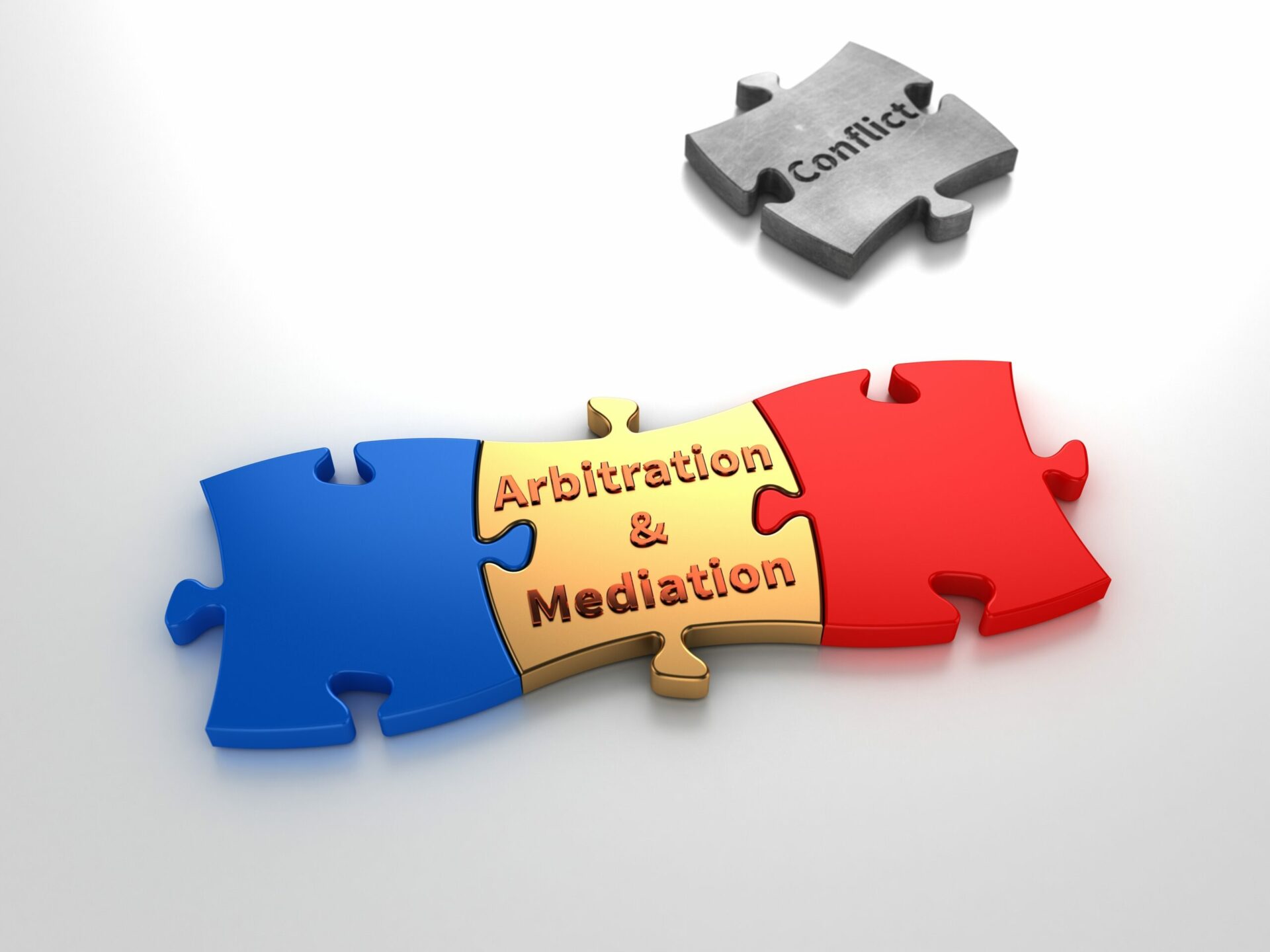Alternate Dispute Resolution is now becoming the first choice of a surging population. With growing conflict and emerging issues in diverse sectors, a solution where all stakeholders get satisfied is most preferable. It also stems from the innate drive of human consciousness—the human tendency to thrive toward peace and security.
Arbitration and Mediation are different tangents of the same wheel, i.e., Dispute Resolution.
Arbitration
Dwelling into Arbitration, it is a resolution mechanism that becomes binding on parties who choose to settle their dispute through this means. Arbitration is a more formal way of dispute resolution. It is based on written papers and often arises even before the dispute actually occurs.
The whole mechanism comes into play when stakeholders sign a contract, usually including an arbitration clause that mandates arbitration as the first resort in case of disputes.
The Arbitration and Conciliation Act, 1996 came into force in India long ago, but the preference for arbitration is growing with the increasing needs of industries and domain experts.
With the development of arbitration, the concept of arbitrability has come into the picture. Arbitrability is now recognized as a specific tool that arbitration is equipped with, to balance client expectations and preserve state interests. It forms the basis for the smooth operation of arbitral proceedings, acting as a gatekeeper and ensuring that a dispute gets a fair chance to be settled on merits. The importance of this tool cannot be exaggerated.
In parallel with economic and legal development, the evolving role of arbitration is challenging the purely national zone of legal terminology, turning arbitration into a specialized field of communication.
Arbitration is usually the first choice of the organized sector, including big MNCs and companies.
Arbitration and Mediation do not work on the principle of evidence in the way courts do. In both processes, parties appoint the arbitrator or mediator of their choice.
Mediation
Mediation, on the other hand, is a more informal method of dispute resolution. The major difference lies in who makes the decision. In arbitration, the decision is made by the arbitrator in a court-like but more flexible manner. However, in mediation, the decision is made by the parties themselves.
The mediator only facilitates the process of decision-making. The mediator offers prospective solutions and choices that are available and only persuades the parties toward a mutual resolution.
Courts are increasingly using mediation in civil matters like property disputes, family disputes, and matrimonial issues. It is now often considered the first step before litigation. If parties fail to mediate successfully, they can then proceed to litigation.
In the Supreme Court, a dedicated mediation center has been established for this purpose. This practice has already solved multiple issues and has potential to reduce the burden on both people and the judiciary.
Utility: Arbitration vs. Mediation
The major difference comes in the utility of arbitration and mediation.
- Arbitration is preferred in commercial contract disputes, construction-related issues, and international trade.
- Mediation is used in family matters, community disputes, and sensitive civil conflicts.
Moreover, arbitration decisions can be appealed, but in mediation, no appeal is necessary because the solution is voluntarily agreed upon.
Mediation Act, 2023 and Community Mediation
Mediation is now governed by the Mediation Act, 2023. With the enactment of this law, mediation has become more formal as society increasingly needs peaceful ways to resolve disputes.
There is already huge pendency in courts, and injustice often leaves people with a sense of resentment. This, combined with multiplicity of cases and an uncontrolled pursuit of justice, may lead to anarchy.
We are social beings, and we must live in a peaceful ecosystem, in harmony. Mediation and arbitration are great steps in this direction.
Community Mediation – Section 44 of Mediation Act, 2023
(1) Any dispute likely to affect peace, harmony and tranquillity amongst the residents or families of any area or locality may be settled through community mediation.
(2) A request for community mediation may be made to the concerned Authority by any person or persons taking initiative or by any party to the dispute or by any other person interested in resolving the dispute.
(3) A panel of three community mediators may be constituted for conducting community mediation, and the said mediators shall be persons of standing and integrity in the locality who are not parties to the dispute.
(4) The process of community mediation shall be conducted in a manner as may be prescribed.
(5) Where an agreement is reached between the parties in the process of community mediation, the same shall be reduced into writing, signed by the parties and the mediators, and a copy thereof shall be furnished to the parties.
(6) The settlement so arrived at in the community mediation shall not be binding unless the same is signed by all the parties to the dispute.
This new clause of community mediation has immense utility and can resolve grassroots-level disputes in a peaceful and efficient manner.
Hence, Arbitration and Mediation are not entirely different, but rather two methods of the same objective — resolving disputes. They should be utilized based on the nature of the conflict and the specific needs of the situation to arrive at the most effective and peaceful solution.
A hybrid method known as “Med-Arb” — part mediation and part arbitration — is also emerging as a customized dispute resolution mechanism. It blends the flexibility and mutual consent of mediation with the finality and enforceability of arbitration. This approach offers a tailored path where parties may first attempt to settle the dispute amicably through mediation, and if unresolved, shift to arbitration for a binding decision.
This evolving domain opens up new possibilities for providing balanced, practical, and client-centric resolutions.




